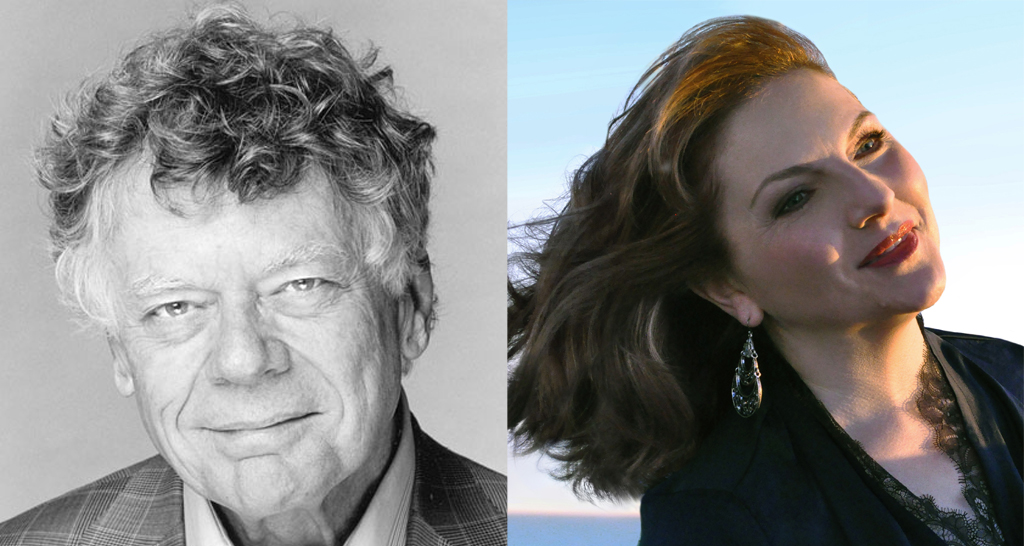
A GALA YEAR FOR PODIUM SUBSTITUTIONS
BERKELEY, CA—The music director’s pregnancy again brings guests to the local symphony podium—a declaration that you probably never once heard back in the 20th century.
But we’re in another era. And Berkeley Symphony’s Joana Carneiro, who last year had triplets, is expecting again and forced to cancel, all of it making her among the most prolific conductors in all music history. This is a double positive, both for her and others, giving up-and-coming conductors too often mired in the “assistant” slot a chance to prove their mettle and take wing. Currently, the fly-in fill-in is Cincinnati’s Japanese associate Keitaro Harada, who gave a glowing account of the “Symphonie Fantastique” Feb. 2, playing the entire originally scheduled program. That comes on the heels of the BSO’s podium guest in the previous set, New Zealander Gemma New on Dec. 7. As for the upcoming April 19 Beethoven Ninth concert, Carneiro is expected to cancel that appearance too, with a replacement TBA.
This same week in Berkeley yet another podium emergency responder was Thierry Fischer filling in at the Royal Philharmonic on tour, replacing the veteran Charles Dutoit who had withdrawn amidst sexual harassment allegations.
Substitutions or not, the Berkeley Symphony is sounding colossal these days. Harada’s neat baton technique guided the players through a mostly-19th-century program and carried off Gordon Getty’s ubiquitous cantata, “Joan of the Bells” (1997), widely considered his finest work, with the 84-year-old San Francisco composer-financier there to share plaudits.
Getty’s texts in English were in recitative mode, the orchestra content to provide the connective fabric between vocal lines, occasionally flaring out in rich romantic and traditional harmonies. As in his recent opera “Usher,” most of the vocal lines by Joan of Arc, Bishop Cauchon and the chorus are predictable up-or-down leaps of a fourth or fifth.
The real strength of the piece comes in the text. The altered historical record here has the church bells stifled by orders, only to break out in the most glorious, irresistible colors when the unjustly condemned teenager dies and is taken up by the heavenly host. This provides one of the most stunning finales since the Millennium.
Equally central to the success was soprano Lisa Delan in her customary role of Joan, playing the part with great dramatic focus, as if in an operatic scena. Baritone Lester Lynch played the tsunami-voiced Cauchon, who mellows from an unyielding scold to a softened admirer.
The Berlioz “Symphonie Fantastique” was rich and vibrant, played by a quality orchestra that has progressed miles and miles since its small-town-band days of the 1970s, now serving as a feast for the ears. Harada interpreted it as if a protégé of Seiji Ozawa. In the finale however Harada was unable to rein in either the overeager brass or the tubular bells of doom, which were loud enough to set off seismographic tremors all over Berkeley, I’d venture. But earlier on, the play was sumptuous and full of diversity, with due attention to dynamics.
The 1832 work had been epic and unique, greatly expanding the sonic palette of the ensemble, and having a story line about a love-drugged poet marched to his execution which allowed recycling of the love theme in later movements. Memorable was the lengthy English horn role, played by Bennie Cottone, with an oboe obbligato distantly rendered by Deborah Shidler.
The concert opened with Fauré’s brief choral prayer “Cantique de Jean Racine,” in French, which showed to poor advantage, as the smallish chorus of 50 upstage was not fully audible out front. Future choral efforts will require more vocalists at Zellerbach.
MUSIC NOTES—Getty, who never seems to slow down, is currently writing an opera based on “Goodbye Mr. Chips,” after the 1934 English novella by James Hilton, a sentimental work about an elderly school teacher….Boxing gloves, any one? Some day we may see a good contest between the printer, who laboriously prints all of the vocal texts in the program, and the lighting tech, who loves to turn the lights down during performance to, well, invisible. That happens in too many orchestral concerts with vocal pieces, driving reader-patrons up the wall…..The only defense for patrons: take a bright flashlight, and thereby drive neighboring symphony-goers up the wall…..
Berkeley Symphony Orchestra, Keitaro Harada guest conductor Feb. 2. Zellerbach Hall, Berkeley. For BSO info: (510) 841-2800, or go online.